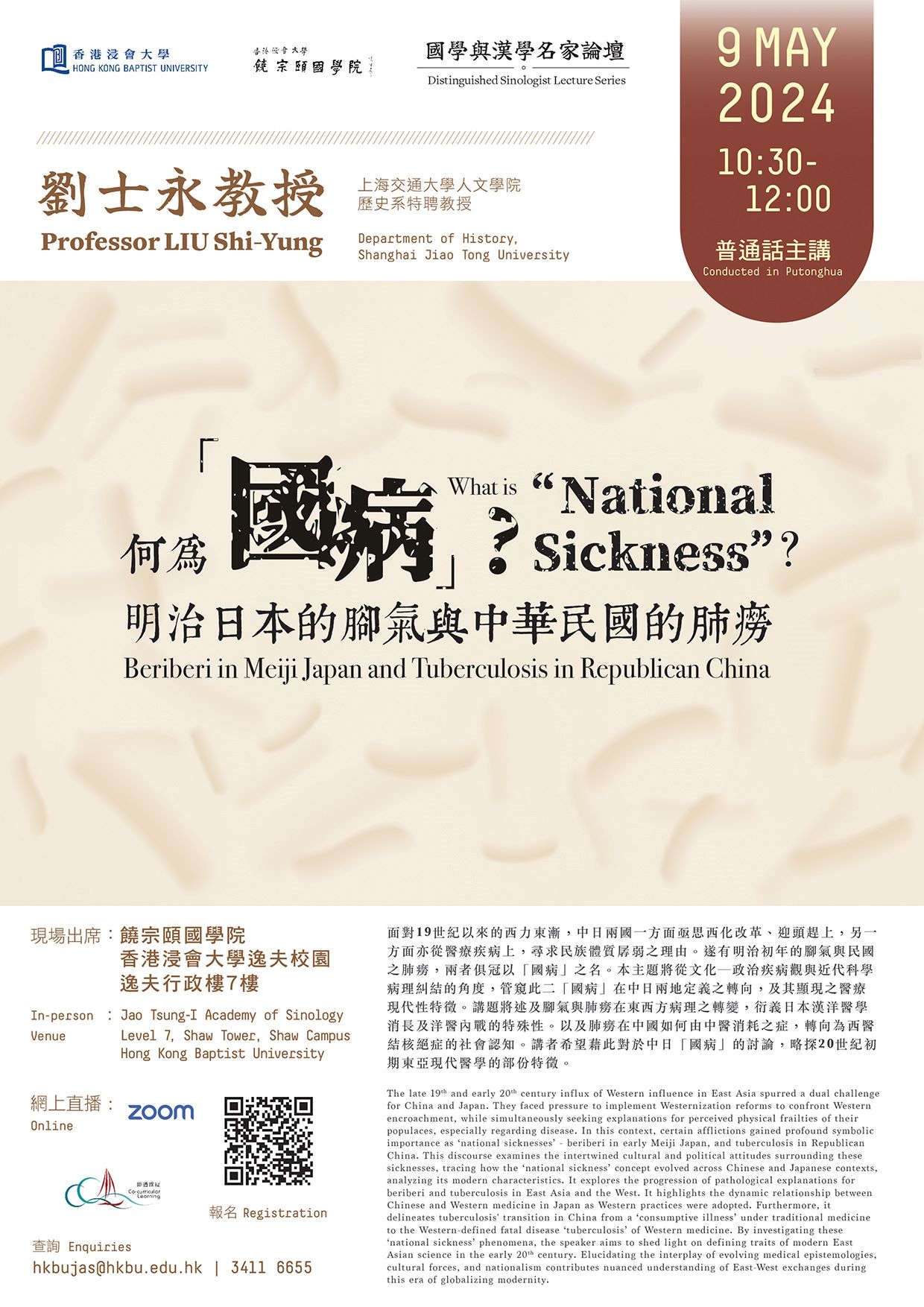
The Academy is honoured to invite Professor LIU Shi-Yung, Department of History, Shanghai Jiao Tong University, to speak for 2024 Distinguished Sinologist Lecture Series with below details:
What is “National Sickness”? Beriberi in Meiji Japan and Tuberculosis in Republican China
2024/5/9 | 10:30–12:00 | Conducted in Putonghua
Speaker: Professor LIU Shi-Yung (Department of History, Shanghai Jiao Tong University)
In-person Venue: Jao Tsung-I Academy of Sinology, Level 7, Shaw Tower, Shaw Campus, Hong Kong Baptist University
Registration: https://forms.office.com/r/EJE81j0TTE
Online: Zoom: https://hkbu.zoom.us/j/91432126649?pwd=ZTF0L0hsNEIyMjhMNWFnWGM0bGU5UT09
Meeting ID: 914 3212 6649
Password: 878288
Abstract: The late 19th and early 20th century influx of Western influence in East Asia spurred a dual challenge for China and Japan. They faced pressure to implement Westernization reforms to confront Western encroachment, while simultaneously seeking explanations for perceived physical frailties of their populaces, especially regarding disease. In this context, certain afflictions gained profound symbolic importance as ‘national sicknesses’ - beriberi in early Meiji Japan, and tuberculosis in Republican China. This discourse examines the intertwined cultural and political attitudes surrounding these sicknesses, tracing how the ‘national sickness’ concept evolved across Chinese and Japanese contexts, analyzing its modern characteristics. It explores the progression of pathological explanations for beriberi and tuberculosis in East Asia and the West. It highlights the dynamic relationship between Chinese and Western medicine in Japan as Western practices were adopted. Furthermore, it delineates tuberculosis' transition in China from a ‘consumptive illness’ under traditional medicine to the Western-defined fatal disease‘tuberculosis’ of Western medicine. By investigating these ‘national sickness’ phenomena, the speaker aims to shed light on defining traits of modern East Asian science in the early 20th century. Elucidating the interplay of evolving medical epistemologies, cultural forces, and nationalism contributes nuanced understanding of East-West exchanges during this era of globalizing modernity.
HKBU students: For CCL attendance, please (1) log in Zoom using HKBU email account, with your name as "STUDENT ID NO. + NAME", and (2) complete and submit the Co‐curricular Learning Evaluation Form after the activity in 3 working days.
Note: A CCL-recognised event must be at least 1.5 hours long. Please observe the requirements if students wish to update the attendance record.